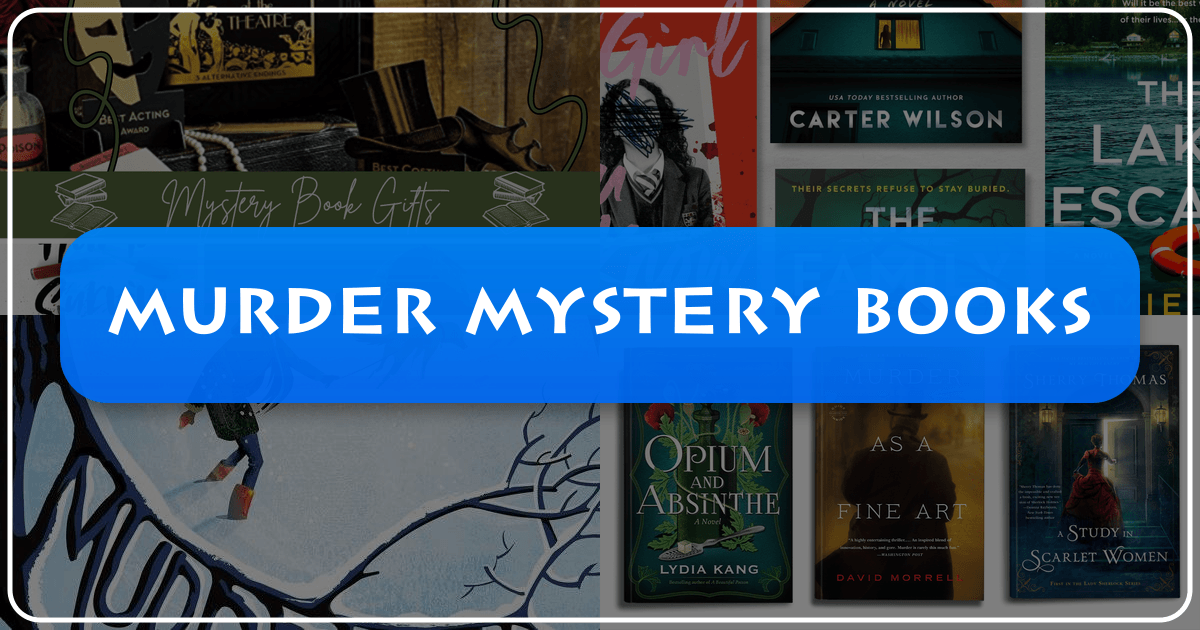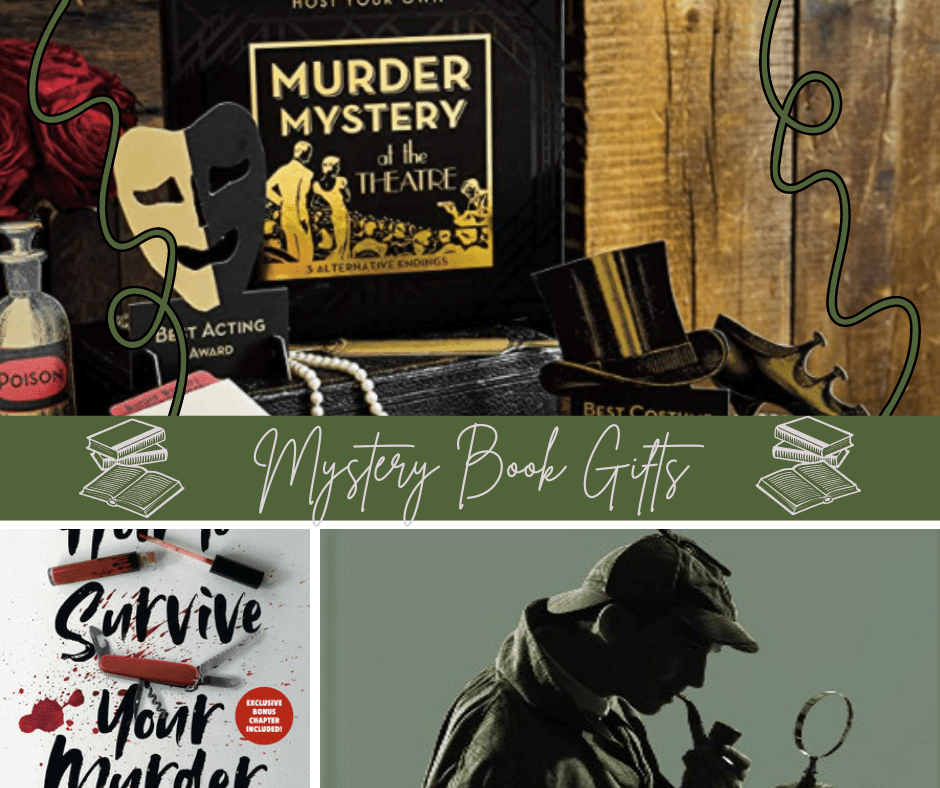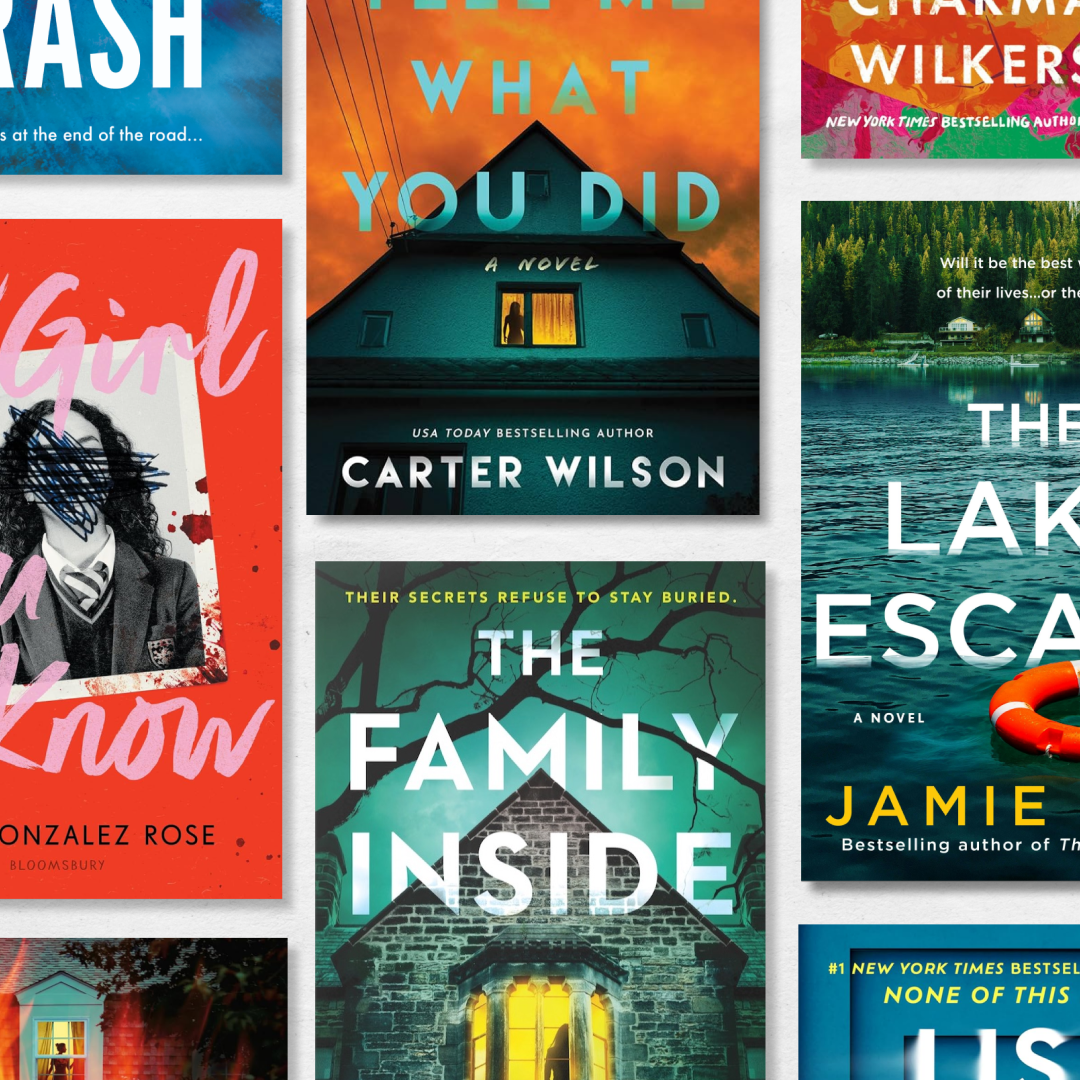Murder Mystery Books: A Deep Dive into the Genre

Murder mystery books have captivated readers for centuries, offering a thrilling blend of suspense, intrigue, and intellectual challenge. From classic whodunits to modern psychological thrillers, the genre continues to evolve, attracting a diverse readership spanning age groups and preferences. This exploration delves into the multifaceted world of murder mystery books, examining their various subgenres, influential authors, enduring cultural impact, and the enriching experience of reading and learning within this captivating literary landscape.
The Diverse Landscape of Murder Mystery Books

The world of murder mysteries is incredibly diverse, encompassing a vast array of subgenres and stylistic approaches. Understanding these variations is key to appreciating the genre’s breadth and depth.
Genres within the Genre: A Spectrum of Suspense
Murder mystery books aren’t a monolithic entity; they branch out into several exciting subgenres. The classic whodunit, exemplified by the works of Agatha Christie, relies heavily on intricate plots, red herrings, and clever deductions. These narratives often feature a shrewd detective, a cast of suspicious characters, and a satisfying resolution where the puzzle pieces elegantly fall into place.

In contrast, cozy mysteries offer a gentler approach, often placing the crime within a familiar and comforting setting, like a quaint village or a charming bookstore. The violence is typically toned down, and the emphasis shifts towards character development and community dynamics.
Psychological thrillers, on the other hand, delve into the minds of the characters, exploring their motivations, fears, and inner turmoil. These narratives often feature unreliable narrators, twisting plot lines, and an unsettling exploration of human psychology. The focus is less on solving the crime itself and more on unraveling the psychological complexities that drive the characters’ actions.

Hard-boiled detective fiction, with its gritty realism and morally ambiguous characters, stands in stark contrast to cozy mysteries. Set in urban environments, these stories often feature cynical detectives navigating a world of corruption and violence. The language is often blunt and the protagonists are frequently flawed and cynical.
Noir fiction, a close relative of hard-boiled detective fiction, emphasizes atmosphere and moral ambiguity. Characterized by dark themes, cynical narratives, and fatalistic outlooks, these stories often explore the underbelly of society and the corrupting influence of power.
Historical mysteries blend the intricacies of crime fiction with historical settings and events. These books often draw on real historical figures or events, adding an extra layer of intrigue and authenticity to the narrative.
Forensic thrillers combine elements of crime fiction with the detailed and scientific approach of forensic investigation. These stories often feature expert witnesses, detailed descriptions of forensic procedures, and a focus on scientific evidence in solving the crime.
Legal thrillers, focusing on the intricacies of the legal system, often feature lawyers, judges, and investigators caught in the crosscurrents of justice and deception. The courtroom becomes a battleground, where verbal sparring and legal maneuvering form the core of the suspense.
Medical thrillers present a unique twist, introducing elements of medicine, medical science, and the ethical dilemmas faced by healthcare professionals. These narratives can incorporate suspenseful plots concerning medical malpractice, illegal experimentation, or medical mysteries related to diseases or unusual health events.
Classics, Bestsellers, and New Releases: A Timeline of Thrills
The murder mystery genre boasts a rich legacy of classic works that have stood the test of time. Agatha Christie’s novels, including And Then There Were None and Murder on the Orient Express, remain immensely popular, showcasing the enduring appeal of elegantly crafted whodunits. Sir Arthur Conan Doyle’s Sherlock Holmes stories have likewise transcended generations, establishing the iconic image of the brilliant, eccentric detective.
Contemporary bestsellers, however, also contribute significantly to the genre’s ongoing success. Authors like Gillian Flynn (Gone Girl) and Ruth Ware (The Woman in Cabin 10) have redefined the psychological thriller, incorporating elements of suspense, deception, and unreliable narration. These modern narratives often reflect contemporary anxieties and societal concerns, adding a layer of relevance to the thrilling plots.
Book Reviews: Navigating the World of Murder Mysteries
Navigating the vast landscape of murder mystery books can be daunting. Book reviews offer invaluable assistance in this endeavor, providing critical insights, plot summaries (without spoilers!), and personal perspectives on the strengths and weaknesses of different titles. These reviews help readers make informed choices about which books to pursue, based on their individual preferences and reading habits. Review aggregators, dedicated to specific genre or broader collections, provide crucial resource sites.
Exploring the Minds Behind the Mysteries: Authors and their Craft
Understanding the authors behind the mysteries adds another layer of appreciation to the genre. Studying their biographies, writing styles, and inspirations provides a deeper understanding of their creative processes and influences.
Author Biographies: The Lives That Shaped the Stories
Delving into the lives of murder mystery authors reveals fascinating insights into their creative motivations. Many authors draw upon their personal experiences, observations, and travels to inform their narratives. Understanding an author’s life can sometimes illuminate hidden meanings or subtle allusions within their books, enriching the reading experience.
Writing Style and Inspirations: The Seeds of Suspense
Analyzing an author’s unique writing style reveals the artistry behind their storytelling. Some authors favor intricate plots and clever wordplay, while others focus on building atmospheric suspense or exploring psychological depths. Identifying recurring themes and motifs helps readers better understand an author’s individual vision. Furthermore, exploration of an author’s inspirations – books, films, personal history, or specific events – illuminate the process and source material that inform their work.
Famous Works and Literary Contributions: A Legacy of Thrills
The most celebrated works of murder mystery authors often leave an indelible mark on the genre, influencing subsequent writers and shaping literary conventions. Examining the lasting influence of these literary titans allows us to understand the trajectory of the genre’s evolution and appreciate its diverse forms and styles.
Reading, Learning, and the Rewards of the Genre
Reading murder mysteries extends beyond mere entertainment; it can be a rewarding intellectual and emotional exercise.
Summaries and Educational Value: More Than Just a Good Read
While reading for pleasure is paramount, summaries and analyses of murder mystery books can provide valuable educational insights. These analyses can highlight literary techniques, plot structures, and character development, offering valuable lessons in storytelling and creative writing. Additionally, exploration of these elements can demonstrate the ways that authors utilize narrative structure, suspense techniques, and character motivations to craft engaging narratives.
Life Lessons and Reading Habits: The Cognitive Benefits
Murder mystery books often explore complex themes, such as morality, justice, and human nature. Engaging with these themes can spark introspection and stimulate critical thinking. Regularly reading, itself, contributes to improved cognitive skills, enhanced vocabulary, and a deeper understanding of diverse perspectives, in this and all genres. The process of following a complex narrative and solving puzzles engages the mind and can provide a rewarding sense of accomplishment.
The Enduring Impact of Murder Mysteries: Culture and Community
Murder mystery books are not confined to the pages they occupy; they have a profound and far-reaching cultural impact.
Literary Influence and Adaptations: From Page to Screen
The enduring popularity of murder mysteries has led to countless adaptations for film, television, and stage. These adaptations often reinterpret the source material, adding new layers of interpretation and expanding the reach of the stories. The cross-pollination between literature and other media enriches the overall understanding and appreciation of the genre.
Awards and Recognition: Celebrating Literary Excellence
Awards specifically designed for crime fiction, and broader literary awards, celebrate the accomplishments of authors who have produced exceptional works in the murder mystery genre. These awards recognize both literary merit and the power of storytelling to capture and hold the attention of readers. Such honors also serve as a guide for discerning readers seeking high-quality narratives.
Communities and Fan Engagement: Sharing the Thrill
Dedicated communities and online forums for fans of murder mysteries facilitate lively discussions and shared experiences. These spaces provide a platform for readers to connect with like-minded individuals, exchanging insights, debating interpretations, and recommending new titles. The enthusiasm and passion of the readership sustains the enduring power of the genre.
Libraries and the Preservation of Mysteries
Libraries, both physical and digital, play a vital role in preserving and making accessible the vast body of work within the murder mystery genre.
Public and Digital Libraries: Democratizing Access
Public libraries provide free access to a wealth of murder mystery books, ensuring that everyone has the opportunity to enjoy this captivating genre. Digital libraries have further broadened access, making e-books and audiobooks readily available to a global audience. These resources serve to ensure the legacy of the genre and democratize its availability.
Rare Collections and Archives: Preserving Literary History
Rare book collections and archives often house first editions and original manuscripts of classic and influential murder mystery books. These collections serve not only to preserve literary history but also to provide valuable resources for scholars and researchers studying the evolution of the genre and its cultural significance. Such archives provide a tangible link to the past and highlight the enduring value of these works.
In conclusion, the world of murder mystery books is a rich and multifaceted tapestry, woven with threads of suspense, intrigue, and intellectual stimulation. By exploring the diverse subgenres, acclaimed authors, enduring cultural impact, and enriching learning opportunities within this genre, we gain a deeper appreciation for its power and lasting appeal. The genre’s continued popularity speaks to its ability to capture the human imagination and provide a thrilling escape into the worlds of crime and detection.